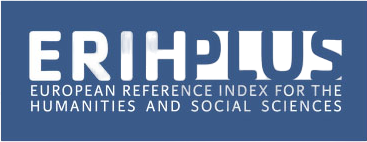Magical realism in the current Polish Constitution
##plugins.themes.bootstrap3.article.main##
In every national constitution, there are abstract notions prone to polysemy and also, there are dysfunctional government bodies in the respective State. In Polish primary law, there are plenty of these types of notions. The author examines only nine of these notions: God, Human Family, common well-being, Human Dignity, Constitution as the Supreme Law of the Land, the legislative power of the Congress and Senate, the President of the Republic as the highest representative, local self-government, and the residential court. The author shows the chimera of these concepts or government bodies. For instance, upon analyzing the five institutions, the author demonstrates that some of them do not even work (residential court) or do not have the characteristics given by the Constitution: the head of State is not the chief representative, the local government is not autonomous, both parliamentary chambers are not equally legislative, the supremacy of law is established but not practiced. With the four vague concepts, it is even worst. It is tough to know what they mean. In the end, the author suggests more research on the subject. If these conclusions are proven within other constitutional jurisdictions, one will be able to establish deeper understandings on the observed phenomenon.
Downloads
##plugins.themes.bootstrap3.article.details##
.Adamiak, B. (2012). Ochrona dobra wspólnego we wspólczesnej koncepcji wadliwosci decyzji administracyjnej, en: R. Balicki, M. Masternak-Kubiak (dirs.), W sluzbie dobru wspólnemu. Ksiega Jubileuszowa dedykowana profesorowi Januszowi Trzcinskiemu,
Varsovia.
·Barcz, J. (2009). Wspólpraca Rady Ministrów z Sejmem i Senatem w sprawach zwiazanych z cz³onkowstwem RP w UE, Varsovia.
·Breillat, D. (1996). La liberté en péril: La liberté d'aller et venir, en: Goncalves, M. y Madiot, D. Rousseau (dirs.), Mélanges offerts a Jorge Campinos.
·Bobbio, N. (1991). Diccionario de política. Ciudad de México.
·Cassebe, S (2015). Diario di un giudice costituzionale, Bolonia.
·Galarza Izquierdo, L. (2007). Tratado de Ciencia Política y Derecho Constitucional. “Realismo mágico ecuatoriano”. Macondiano: jurídico, político, social, Quito.
·Gowin, J. (1995). Kosciól po komunizmie, Cracovia.
·Jankowski, K. (2007). Nowa Konstytucja RP. Wartosc, jednostka, instytucja, Torun.
·Jaskiernia, J. (2006). Wp³yw integracjiz Unia Europejska na funkcje ustawodawcza Sejmu, Studia Prawnicze.
·Lawniczak, A. y Masternak Kubiak, M. (2006). La Republica en general y en el constitucionalismo polaco”, Dikaion- Lo Justo. Revista de Actualidad Jurídica.
·Majcherek, J. (2007). Demokracja – przygodnosc – relatywizm, Varsovia.
·Szymanek, J. (2011). Konstytucjonalizacja idei panstwa wyznaniowego (en:) J. Szymanek (dir.), Panstwo wyznaniowe. Doktryna, prawo i praktyka, Varsovia.
·Taureck (2006). Die Menschenwurde im Zeitalter ihre Abschaffung. Eine Streitschrift, Hamburg.
·Valencia Villa, E. (2003). Diccionario Espasa. Derechos Humanos, Madrid.
·Zajadlo, J. (2005). Spolecznosc miedzynarodowa czy
wspólnota miedzynarodowa, “Panstwo i Prawo”

















